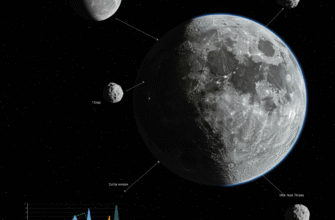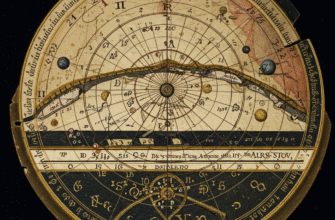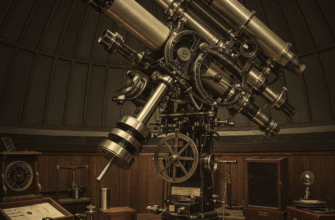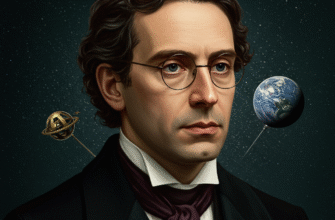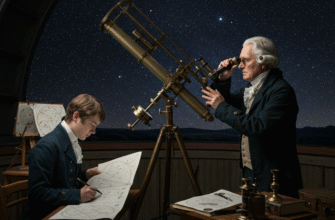Beyond the sun-drenched shores of the familiar world, where the sky bruised purple with twilight and stars began to prick the darkening dome, lay a garden of unimaginable wonder. This was not a place found on any mortal map, but one woven into the very fabric of Greek myth: the Garden of the Hesperides. Here, under a perpetually starlit sky, grew trees that bore no ordinary fruit, but gleaming golden apples, a treasure beyond price, for they were rumored to grant immortality to any who consumed them.
The Whispering Orchard of the West
Legends whispered that this celestial orchard was nestled at the westernmost edge of the world, sometimes near the Titan Atlas, who bore the heavens on his weary shoulders. It was a place bathed in the soft glow of eternal evening, a sanctuary where the mundane laws of nature held little sway. The air itself hummed with a quiet magic, and the rustling leaves of the apple trees seemed to murmur secrets to the sighing breeze. These were not just any apples; they were a divine gift, a symbol of enduring life and celestial favor. Originally, they were a wedding present from Gaia, the Earth Mother, to Hera, queen of the gods, upon her marriage to Zeus. Hera, cherishing this precious gift, planted them in her divine garden, a testament to love, fertility, and the sacredness of cosmic order.
The Celestial Guardians: Nymphs of Twilight
Entrusted with the care of this miraculous orchard were the Hesperides, nymphs whose very essence was tied to the evening and the golden light of sunset. Their parentage is often debated in ancient texts; some say they were daughters of Nyx (Night) and Erebus (Darkness), others of Atlas himself, or even of Phorcys and Ceto. Their names, too, varied from telling to telling – Aegle (Dazzling Light), Erytheia (the Red One), Hesperia (Evening), Arethusa, and Hesperethusa among them. These radiant maidens, often depicted with voices as sweet as honey, would sing as they tended the golden boughs, their melodies weaving through the starlit glades. They were the gentle keepers, the embodiment of the garden’s serene and otherworldly beauty, their presence a soft counterpoint to the more formidable guardian that also dwelled within.
The Ever-Watchful Serpent: Ladon
For Hera, mistrustful even of her own nymphs, placed a more terrifying guardian to ensure the apples remained untouched: Ladon, a dreadful, hundred-headed dragon. Each head spoke with a different, horrifying voice, and its eyes never knew the solace of sleep. This monstrous serpent coiled its immense body around the trunk of the apple tree, or perhaps patrolled the garden’s perimeter, a living, slithering wall of fangs and fury. Ladon was a child of the monstrous Typhon and Echidna, or sometimes Ceto and Phorcys, lineage that spoke volumes of its fearsome nature. To even approach the garden was to invite an encounter with this unsleeping horror, a challenge few would dare, and even fewer could survive.
The golden apples, a divine wedding present from Gaia to Hera, symbolized not only immortality but also the sanctity of marriage and cosmic order. Their location in a garden at the edge of the world, tended by nymphs of the evening and a sleepless dragon, underscored their precious and inaccessible nature. This made their acquisition by a mortal hero like Heracles a feat of immense significance, testing the limits of human courage against divine decree.
Heracles’ Perilous Quest: The Eleventh Labor
It was into this formidable, star-kissed sanctuary that the hero Heracles was fated to venture. As his eleventh labor, imposed by the resentful King Eurystheus, Heracles was tasked with the seemingly impossible: to retrieve the Golden Apples of the Hesperides. This was more than a test of strength; it was a journey into the unknown, a defiance of divine boundaries. The path to the garden was shrouded in mystery, and Heracles wandered far and wide, seeking knowledge of its hidden location. His journey brought him encounters with various deities and mythical beings. He wrestled Nereus, the ancient sea god, to learn the way, and later, in some versions, freed the Titan Prometheus from his eternal torment on Mount Caucasus. It was often Prometheus, grateful for his liberation, who offered the crucial advice on how to obtain the apples without directly confronting the full might of their guardians.
The Clever Deception of Atlas
Prometheus’s counsel, in many popular accounts, was to avoid fighting Ladon directly. Instead, Heracles was advised to seek out Atlas, the Titan condemned to hold the celestial sphere upon his shoulders, for the Hesperides were sometimes named as his daughters. Heracles journeyed to where Atlas stood, groaning under his cosmic burden. The hero offered the Titan a temporary reprieve: Heracles would take the weight of the heavens if Atlas would venture into the nearby garden and fetch the apples. Atlas, desperate for even a moment’s rest, readily agreed. He carefully passed the sky to Heracles’ powerful shoulders and, being immune to Ladon’s threat or perhaps knowing how to pacify his daughters’ charge, soon returned with three of the gleaming golden fruits. However, Atlas, savoring his freedom, then declared he would deliver the apples to Eurystheus himself, leaving Heracles in his eternal predicament. But Heracles, renowned for his brawn but also possessing a keen mind, feigned agreement. He merely asked Atlas to take the sky back for a moment, just so he could adjust his cloak to better cushion the immense weight. The weary Titan, not suspecting a trick, obliged, and Heracles, once free, swiftly scooped up the apples and departed, leaving Atlas to his timeless punishment. This tale highlights a different facet of the hero – not just brute strength, but cunning.
A Hero’s Triumph and Divine Restoration
Other, perhaps older, versions of the myth tell of Heracles directly confronting and slaying Ladon. In these narratives, the hero’s arrows, sometimes dipped in the poisonous blood of the Lernaean Hydra, found their mark, and the great dragon fell. Some say that after Ladon’s death, Hera, in sorrow or honor, placed the serpent among the stars as the constellation Draco, forever coiled near the celestial pole. Regardless of the method, Heracles succeeded in his task. He brought the golden apples back to Eurystheus, who, terrified of possessing such divine and potent objects, had no idea what to do with them. The apples, too sacred for the mortal realm, were eventually given to Athena, who, in her wisdom, returned them to the Garden of the Hesperides, their rightful place. Heracles’ labor was not about permanent possession, but about the completion of an impossible task, proving his divine favor and heroic stature.
Golden Echoes: Other Apples in Mythic Lore
The allure of golden apples, potent symbols of desire, immortality, or divine intervention, echoes in other Greek myths, though not always directly linked to Hera’s specific orchard. These recurring motifs underscore the fruit’s powerful symbolic resonance within the Hellenic imagination. The golden apple became a kind of shorthand for an object of immense value, capable of changing destinies.
Atalanta’s Race and Aphrodite’s Gift
One notable instance involves the swift-footed huntress Atalanta. Unwilling to marry, she declared she would only wed a suitor who could outrun her in a footrace; losers would face death. Many tried and failed, until Hippomenes (or Melanion) sought the aid of Aphrodite, the goddess of love. Aphrodite, sympathetic to his plight, gifted him three irresistible golden apples, possibly sourced from her own sacred groves in Cyprus, or perhaps a magical creation akin to those of the Hesperides. During the race, as Atalanta began to pull ahead, Hippomenes strategically dropped the apples one by one. Each time, Atalanta, captivated by their beauty and unable to resist, paused to retrieve them, allowing Hippomenes to gain ground and ultimately win the race, and her hand. Here, the golden apples symbolize irresistible temptation and the power of love, or perhaps divine trickery, to overcome even the most formidable obstacles.
The Seed of Discord: Eris’s Intervention
Perhaps the most infamous golden apple in Greek mythology, though distinct from those of the Hesperides, was the “Apple of Discord.” At the wedding of Peleus and Thetis (parents of Achilles), Eris, the goddess of strife, uninvited and resentful, tossed a golden apple among the guests inscribed with the words “ΤΗΙ ΚΑΛΛΙΣΤΗΙ” – “For the Fairest.” This simple act ignited a bitter rivalry among three powerful goddesses: Hera, Athena, and Aphrodite. Each claimed the apple, and the ensuing dispute led to the Judgment of Paris, where the Trojan prince was tasked with choosing the fairest. His choice of Aphrodite, who promised him Helen of Sparta, the most beautiful mortal woman, directly precipitated the Trojan War. While not from Hera’s garden, this apple shares the “golden” characteristic and its capacity to sow chaos and alter the course of history, highlighting the potent symbolism of such an object of desire.
The Golden Apples of the Hesperides, shimmering in their starry garden, remain one of the most captivating images in Greek mythology. They represent the ultimate prize, the allure of immortality, divine beauty, and the perilous boundary between the mortal and divine realms. Whether sought by heroes through strength and cunning, or used as instruments of love and discord, these mythical fruits continue to fascinate, embodying the enduring power of legend and the timeless human yearning for that which lies just beyond reach, guarded by monsters and nymphs, under a canopy of eternal stars.

